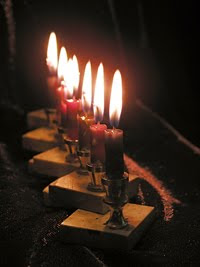
is that it is often difficult to know which side is right. What one side sees as a valid complaint, the other may see as nonsense. As the saying goes, “There are two sides to every story.”
How, then, does one handle this kind of situation? The Chofetz Chaim cautions us, “Ponder the matter carefully, in accordance with the laws of the Torah and [only then] decide which side is the baal machlokes (instigator of strife).” Apparently, the Chofetz Chaim is telling us to consult someone whois learned and, with his guidance, sift slowly and carefully through the information to determine if one of the disputants can be classified as a baal machlokes.
This is not an easy task. The Chofetz Chaim says that if, after examining the situation carefully, we cannot determine which side is guilty, then we should refrain from becoming involved.
If, on the other hand, we have determined that one of the parties is a baal machlokes, then the Torah allows us to publicly voice our condemnation of this person as a means of convincing him to end the dispute. We are speaking specifically of a case where the baal machlokes will most likely back away from the battle when he realizes that public opinion is against him. On the other hand, if this person is impervious to public opinion, then there is no constructive purpose in publicly declaring him a baal machlokes, and doing so would constitute speaking loshon hora.
The Chofetz Chaim lists three additional prerequisites before one speaks against a baal machlokes:
1. One must have accurate firsthand information regarding the dispute.
2. One’s intention must be strictly for a constructive purpose and not because he happens to dislike this person. If a previous animosity exists, one is not allowed to become involved. This point will be clarified later in this volume (see Day 83).
3. Obviously, if one can speak privately to the baal machlokes and convince him to desist, then that is the path which one is required to take. However, the Chofetz Chaim recognizes that in the case of the baal machlokes, rebuke may be a double-edged sword. By rebuking him in private one may lose his status as an impartial party and become aligned in the instigator’s mind with his enemies. The instigator may then move quickly to thwart any attempts to rebuke him publicly. If this scenario seems to be a real possibility, then one should not attempt to rebuke the baal machlokes in private.
from:
dcompanion@chofetzchaimusa.org


























.jpg)


















